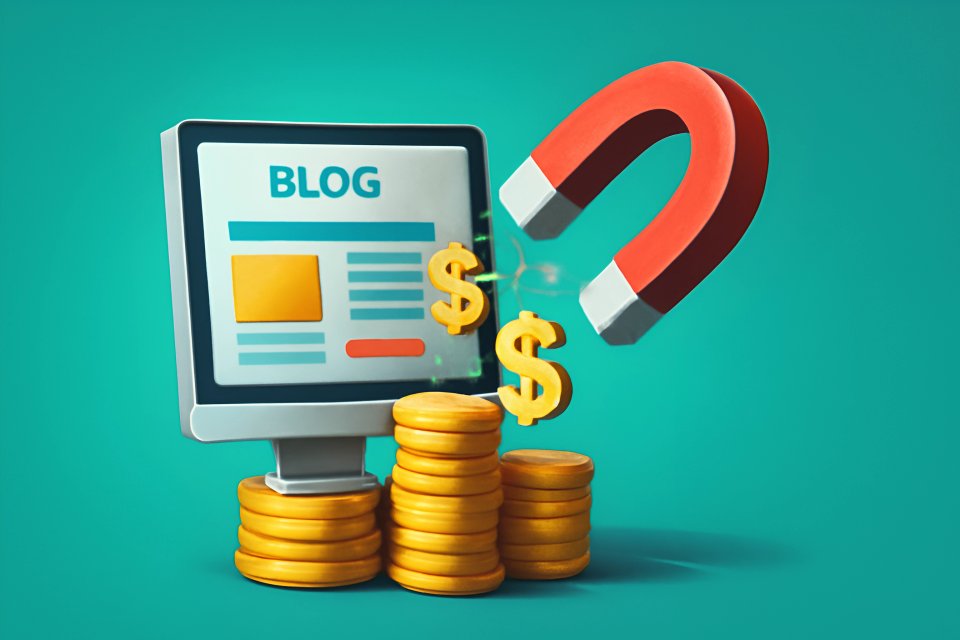
Is this affiliate marketing thing even real? Can someone like me actually make money doing this? If these questions have been bouncing around your head, you're in exactly the right place. That nagging doubt, that flicker of hope mixed with a healthy dose of skepticism – it’s completely normal.
But here’s TheEarnist promise: Yes, you absolutely can. Forget the overhyped 'gurus' flashing Lamborghinis and promising overnight fortunes. This guide is your straight-talking, no-fluff companion, packed with real, actionable affiliate marketing tactics for beginners. Our mission? To help you cut through the noise and earn that incredibly exciting first commission – the one that proves this is all very, very real.
So, what is affiliate marketing, stripped down to its core? Imagine you're a helpful digital salesperson for products you genuinely trust. You share these products with people who could benefit, and when they make a purchase through your unique tracking link, the company sends you a thank-you fee. As Investopedia defines affiliate marketing, it's a performance-based model where businesses reward one or more affiliates for each visitor or customer brought by the affiliate's own marketing efforts. It’s about authentic recommendations, not aggressive sales pitches.
Why are we so focused on that first commission? Because, frankly, it’s pure magic. It’s the tangible proof that the system works, that you can make it work. That initial sale, no matter how small, builds critical confidence and shows you the path forward. Shopify highlights that affiliates receive unique links to track referrals and earn commissions, often with minimal upfront investment, making that first win accessible.
The Foundation: Setting Yourself Up for (Fast) Success
Ready to lay the groundwork for that first taste of success? It starts with a couple of key decisions that don't need to be complicated. Think progress, not perfection.
Niche Down (But Don't Overthink It Initially)
Feeling that wave of overwhelm when someone mentions "niche selection"? Take a deep breath. For your first commission, you don't need to spend weeks agonizing over the "perfect" niche. Instead, lean into what you already know, what you genuinely use in your daily life, or subjects that truly spark your curiosity and passion.
Here’s a core TheEarnist Tip: Passion combined with a problem you can help an audience solve is a fantastic starting point. Are you a whiz at budget travel? Do you know all the best gear for beginner photographers? Can you help people simplify their meal prepping? Don't aim for absolute perfection right out of the gate; aim for action. You can always refine and pivot as you learn. Shopify points out several lucrative niches like personal finance, pet care, and home décor, emphasizing the importance of aligning with audience interests and monetization potential.
Remember, perfectionism is the thief of progress, especially when you're just starting out. Pick an area that feels right for now and commit to moving forward. Momentum is your best friend in the quest for that first commission.
Finding Your First Affiliate Product/Program
The most compelling and trustworthy recommendations come straight from the heart – and your own experience. What products or services are you already using, loving, and perhaps even raving about to friends and family? This is your initial goldmine because, as EasyAffiliate explains, authenticity in product selection is key to building trust between sellers, affiliates, and customers. When you genuinely believe in what you're promoting, it shines through.
For those new to the game, several programs are known for being beginner-friendly. Amazon Associates is often recommended by Authority Hacker due to its low barrier to entry and incredibly broad range of products, making it easier to find something relevant to your chosen interest. ClickBank is another popular option, particularly for digital products, though it's wise to carefully vet the quality of offerings. Beyond these giants, many specific tools, software, or services within your niche will have their own affiliate programs – often with attractive terms.
When you're evaluating potential products or programs, keep a few key considerations in mind. What is the commission rate? How long does the tracking cookie last (this is the cookie duration, which determines how long after a click you can still earn a commission)? Crucially, is the product genuinely relevant and beneficial to the audience you intend to reach, and does the merchant maintain a good reputation? These aren't just minor details; they significantly impact your earning potential and credibility.
Your actionable step right now: Pause your reading for a moment. Grab a piece of paper or open a new note, and list 3-5 products or services you currently use and genuinely appreciate that might have an affiliate program. This simple exercise can unlock your first promotional idea.
Choosing Your "Quick Win" Platform (Where to Share Your Links)
With a niche idea and a potential product in mind, where do you actually share your affiliate links to get those first clicks and, hopefully, that first commission? The digital world is vast, but for beginners, focus is paramount.
The "One Platform" Rule for Beginners
Are you feeling the magnetic pull to be on every social media channel, start a blog, launch a podcast, and create YouTube videos all at once? Hit the brakes! Spreading yourself too thin is a classic beginner mistake and a surefire recipe for burnout and zero results. For that crucial first commission, laser focus is your superpower.
Your strategy should be to pick ONE platform and commit to understanding its culture, its algorithm (as much as anyone can!), and how to best connect with its users. ClickBank's advice for beginners resonates here: start with one niche and a very limited number of traffic sources, often prioritizing organic social media for cost-effective testing and learning. Mastering a single channel will provide invaluable lessons that you can later apply elsewhere, but for now, embrace the power of one.
This focused approach allows you to learn faster, adapt quicker, and avoid the overwhelm that often derails aspiring affiliate marketers. Once you've cracked the code on one platform and earned that first commission, you can then consider expanding your reach.
Options & Their "Fast Commission" Potential
So, which platform should be your chosen one? Let's look at a few popular options and their potential for delivering that quick win, keeping in mind that "quick" still requires effort and smart strategy.
Existing Social Media (if you have a small, engaged following)
Do you have a cozy corner on Facebook, Instagram, X (formerly Twitter), or even LinkedIn where you have genuine connections and a bit of an engaged following? This could be your most direct route to a fast commission. You've already done some of the legwork by building a degree of trust and rapport with your network. Uppromote highlights platforms like YouTube and Facebook as top choices for beginners due to their massive user bases and engagement potential.
The significant advantage here is that there's no new platform to learn from scratch; you're leveraging existing connections. However, the challenge lies in making recommendations authentically without sounding overly "salesy," which can alienate your followers. Additionally, be mindful of platform-specific rules regarding the direct placement of affiliate links in posts or stories; some are more restrictive than others.
A quick tactic to try: Craft a genuine, heartfelt post or story. Something like: "Hey everyone, I've been using [Product Name] for [Specific Benefit/Problem Solved] and it's honestly been a game-changer for me. If you're also struggling with [Related Problem], you might want to check it out! (Full disclosure: This is an affiliate link, which means if you decide to purchase, I might earn a small commission at no extra cost to you. I only ever share things I truly use and believe in!)"
Niche Forums/Communities (e.g., Reddit, Facebook Groups)
Imagine walking into a room where everyone is passionately discussing the exact problem that your chosen affiliate product solves. That's the incredible power of niche forums and communities, such as specific subreddits on Reddit or highly focused Facebook Groups. The audience here is often incredibly targeted and actively seeking solutions.
These platforms can be goldmines for connecting with people who have a demonstrated interest in your niche. However, they almost universally have very strict rules against blatant self-promotion and link-dropping. Your mantra in these spaces must be: value first, value second, value third. LinksTest notes that while Facebook Groups offer broad reach, Reddit communities often boast a higher trust factor despite potentially smaller, more niche audiences.
A quick tactic for these communities: Become an active, helpful member. Answer questions thoroughly and thoughtfully. If, and only if, it's genuinely relevant to the discussion and explicitly allowed by the group's rules, you can subtly mention a tool or product that helped you solve a similar problem, including your (clearly disclosed) affiliate link. Always, always check the community guidelines before posting any links, or you risk being banned.
A Simple "Review" Style Blog Post (on a free platform like Medium, or a basic WordPress site)
Do you prefer to express yourself with a bit more space and have greater control over the presentation of your message? A simple, focused review-style blog post can be an incredibly effective way to share your affiliate recommendations. Platforms like Medium offer a free and user-friendly way to get started with blogging, while a basic self-hosted WordPress site provides even more long-term control and customization options.
This approach allows you more room to elaborate on the product's benefits, share your personal story, and incorporate visuals. It's also generally better for search engine optimization (SEO) in the long run, meaning people might find your review through Google searches over time. The main trade-off is that it typically requires a bit more initial setup and effort compared to a quick social media update.
A quick tactic for a blog post: Write an honest, in-depth review focusing on ONE specific product and how it solves ONE particular problem. Consider a title like: "My Unfiltered Experience: How [Product Name] Finally Helped Me Conquer [Specific Challenge]." Pour your genuine experience, both pros and cons, into the post to build credibility.
YouTube (if comfortable on camera)
If a picture is worth a thousand words, then a video can be worth a million, especially in affiliate marketing. If you're comfortable being on camera, YouTube offers unparalleled potential for engagement and connection. You can visually demonstrate the product, showcase its features in action, and let your personality shine through.
Video content is incredibly powerful for building trust; viewers can see you, hear your voice, and connect with your authentic experience. The primary hurdle, for many, is the production effort involved – filming, editing, and uploading videos can be time-consuming, especially when you're starting.
A quick tactic for YouTube: Create a short, engaging "how-to" video demonstrating the product solving a specific problem, or an "unboxing and first impressions" video sharing your initial thoughts. Keep it real, focus on being helpful, and always include your affiliate link (with a proper disclosure) in the video description.
Here's a quick comparison of these platforms:
| Platform | Pros | Cons | Quick Tactic Example |
|---|---|---|---|
| Social Media | Leverage existing connections, no new platform setup | Can feel salesy if not done right, platform link restrictions | Genuine recommendation post/story with disclosed link |
| Niche Forums/Groups | Highly targeted audience, problem/solution focused | Strict rules on self-promotion, requires providing value first | Answer questions helpfully, subtly link if relevant & allowed |
| Simple Blog Post | More control over content, better for SEO in the long term | Takes a bit more initial setup and writing effort | Focused review on ONE product solving ONE specific problem |
| YouTube | High engagement, visual demonstration builds trust quickly | Production effort (filming, editing) can be a barrier | Short "how-to" or "unboxing/first impressions" video |
TheEarnist Advice: So, which path calls to you? The key is to choose the platform where your target audience for your chosen product already hangs out AND where you feel most comfortable and authentic creating content. Don't try to force yourself onto a platform that feels unnatural; lean into your strengths to get that quick win.
Content Strategies for That First Commission (Focus on Value & Trust)
You've picked a product and a platform. Now, what do you actually say? The content you create is the bridge between your audience's needs and the solution your affiliate product offers. The secret? Focus relentlessly on value and building trust.
The "Helpful Recommendation" Approach (Not Hard Selling)
Forget any preconceived notions of being a pushy, aggressive salesperson. That approach is dead in the water, especially in affiliate marketing. Your primary goal isn't to 'sell' anyone anything; it's to help. When you genuinely aim to solve a problem or fulfill a need for your audience, the commission becomes a natural and welcome byproduct of your service.
Shift your mindset from "How can I sell this?" to "How can this product genuinely benefit someone, and how can I best communicate that?" Focus your content on addressing your audience's pain points, aspirations, or questions. Share your authentic experience – and this is crucial – include both the pros and the cons or any limitations of the product. This level of transparency is what builds rock-solid trust, and trust is the absolute cornerstone of successful, ethical affiliate marketing.
This approach not only feels better but also resonates deeply with today's savvy consumers who can spot an insincere sales pitch from a mile away. Be the trusted friend who gives great advice, not the annoying telemarketer.
Content Types That Convert Quickly for Newbies
While long-form, epic content has its place, for snagging that first commission quickly, certain content types tend to be more effective for beginners. They are typically easier to create and resonate well with audiences looking for specific solutions.
The Mini-Review
You don't need to write a 3000-word dissertation to make an impact. A concise, honest mini-review of a single product you personally use can be incredibly powerful. Focus on answering key questions: What specific problem does this product solve for you? What are the 1-2 standout benefits you've experienced? Who, specifically, would you recommend this product to (and perhaps, who it might not be for)? Keep it focused, authentic, and to the point.
The "How-To" with a Product Solution
People are constantly searching for "how-to" information online. Frame your content as a practical guide that showcases your affiliate product as an integral part of the solution. For example: "How I Finally Organized My Chaotic Digital Files Using [Product Name]" or "The Simple 3-Step Process I Use to Brew Perfect Coffee Every Morning Thanks to [Product Name]." By showing the product in action and demonstrating its value in a real-world context, you make a much more compelling case than simply listing features.
The Quick Comparison (2 Products Max)
Sometimes your audience isn't just looking for one solution, but trying to decide between a couple of options. A quick, focused comparison between two similar products can be extremely helpful, especially if you can guide them toward the best choice for their specific needs or budget. For instance: "Product A vs. Product B for Beginner Podcasters: Which Microphone Should You Choose?" When you're starting, keep these comparisons limited to just two products to avoid overwhelming your reader (and yourself with research!).
Essential: Affiliate Link Disclosure!
This point cannot be stressed enough: You MUST disclose your affiliate links. This isn't just a polite suggestion or a "nice-to-have"; it's a critical requirement for maintaining trust with your audience and complying with legal guidelines, such as those set forth by the Federal Trade Commission (FTC) in the US and similar bodies elsewhere. Tapfiliate clearly states that clear affiliate disclosures are mandatory to comply with FTC guidelines and, just as importantly, to maintain audience trust.
Think about it from your audience's perspective. If a friend recommended a restaurant and you later discovered they received a kickback for that recommendation without telling you, it would likely erode your trust in their future advice. Transparency is paramount for building and maintaining long-term relationships, both online and offline. It’s one of the most vital affiliate tips for newbies.
Fortunately, disclosing is simple. A clear and conspicuous statement like:
"Please note: This post contains affiliate links. If you click through and make a purchase, I may earn a small commission at no extra cost to you. I only recommend products I genuinely use and believe in!"
Place this near your affiliate links, or at the beginning/end of your content. Honesty isn't just the best policy; it's the only policy for sustainable affiliate success. RankMath also warns against low-quality bridge pages that can feel manipulative, underscoring the need for transparency and value.
Actionable Tactics to Drive Traffic & Clicks (Ethically & Effectively)
You've crafted some valuable content with your affiliate links neatly embedded and disclosed. Now, how do you get eyeballs on it? Driving traffic is where the rubber meets the road. Here are some ethical and effective tactics.
Direct & Honest Sharing
Sometimes, the most straightforward approach is the most effective, especially when you're leveraging existing connections. If you're using your personal social media profiles as your chosen platform, don't be afraid to be direct and honest with your friends, family, and followers. Authenticity can be very disarming and appealing.
A simple, transparent message can work wonders. Consider something like: "Hey everyone, I'm currently exploring affiliate marketing as a way to share some of the products I genuinely love and use, and potentially earn a small commission. I recently started using [Product Name] and it's been absolutely fantastic for [Specific Benefit]. If you've been looking for something similar, you might want to check it out here: [Your Affiliate Link] (Yes, that's an affiliate link!). Let me know if you have any questions!"
This kind of open approach respects your audience and sets clear expectations. People often appreciate the honesty, and your genuine enthusiasm for the product can be far more persuasive than a slick marketing pitch.
Answering Specific Questions
Platforms like Quora, Reddit (in relevant subreddits), and niche-specific online forums are treasure troves of people actively asking questions and seeking solutions. Your mission, should you choose to accept it, is to find questions that your chosen affiliate product can genuinely help answer. LinksTest specifically suggests answering niche-specific questions on Reddit or Quora before subtly inserting affiliate links, always ensuring compliance with community rules.
The key here is to provide comprehensive, genuinely helpful answers first. Offer real value and establish yourself as a knowledgeable resource before even thinking about dropping a link. Then, if it's truly relevant to your answer and permitted by the platform's guidelines, you can mention the product as a solution you've personally used or found effective, including your affiliate link with a clear disclosure. Never spam; always prioritize adding value to the conversation.
This tactic, when executed thoughtfully and ethically, can drive highly targeted traffic from individuals who are already in a problem-solving mindset. Affilorama's 7-step framework for first-time affiliates also underscores the importance of quality content and audience-building as non-negotiable elements.
Creating a "Resource Page" (if you have a simple blog/website)
If you've decided to use a simple blog or a basic website as your platform, creating a dedicated "Resource Page" or "Tools I Love & Recommend" page can be an incredibly valuable asset. This is a single, easily accessible page where you list and briefly describe the tools, products, software, books, or services that you genuinely use and recommend within your niche.
This page becomes a go-to reference point for your audience, offering them a curated list of helpful solutions. It's also incredibly easy to share the link to this single resource page in various places – your email signature, your social media bios, or as a helpful link at the end of relevant blog posts or articles. Each item listed on your resource page can, of course, feature your unique affiliate link (with proper disclosure).
This strategy organizes your recommendations in a user-friendly way and provides ongoing value to your audience. It positions you as a helpful curator, making it a natural place for people to look when they need a solution you might have experience with.
Using "Bridge Pages" (Optional, slightly more advanced but effective)
Feeling ready to explore a slightly more advanced but often highly effective tactic? Consider using a "bridge page." A bridge page is a simple, intermediary webpage that sits between your initial content (e.g., a social media post, an ad) and the merchant's sales page (which your affiliate link directs to). Its primary purpose is to "warm up" the visitor, provide more context, build more trust, and pre-sell the offer before they click the final affiliate link. RankMath explains bridge pages as these valuable intermediaries that can feature reviews or tutorials.
This bridge page could take the form of a short, focused review, a compelling list of benefits, a personal video testimonial, or even an exclusive bonus you offer to people who purchase through your link. It gives you an additional opportunity to connect with the potential customer and reinforce the value proposition. ClickBank offers an example of a bridge page where a quiz about yoga preferences effectively pre-sells a relevant course, demonstrating how to warm leads.
While perhaps not essential for your very first commission, understanding and implementing bridge pages can significantly improve your conversion rates as you become more experienced. The key is to ensure your bridge page offers genuine additional value and isn't just a flimsy, low-effort page designed to quickly pass traffic.
Basic Content Optimization (Even for Quick Wins)
Even if your primary goal is a quick win and you're not diving deep into advanced SEO just yet, a few basic content optimization practices can make a significant difference in getting your content seen and clicked. Start with a clear, compelling, benefit-driven headline for your review, post, or video. Ask yourself: "What's in it for the reader/viewer?" and make that promise evident in your title.
If you're writing a review or a blog post, try to naturally include your target keyword or phrase. For example, if you're reviewing a "budget-friendly microphone for beginner podcasters," ensure that phrase (or close variations) appears logically within your text, particularly in the headline and early paragraphs. This helps search engines (and people) understand what your content is about.
Finally, make your affiliate links clear, prominent, and easy to click. Don't bury them in dense text. Use clear call-to-action buttons (e.g., "Find Out More About [Product Name] Here" or "Get [Product Name] Now") or make the linked text bold and descriptive. You want to remove any friction that might prevent someone from clicking through.
Tracking Your Progress (and Not Getting Discouraged)
You've put your content out there, links and all. Now what? It's time to see what's happening behind the scenes. Tracking your progress is vital, not just to see if you've made a sale, but to understand what's working and what's not.
Understanding Your Affiliate Dashboard
Once you've started sharing your affiliate links, your next port of call is your affiliate program's dashboard. This is your command center, where you'll typically find key metrics like clicks (the number of times people have clicked on your unique affiliate link) and conversions or sales (the number of people who clicked your link and then made a qualifying purchase). Some dashboards might also show impressions, click-through rates (CTR), and earnings.
Don't be intimidated by the array of numbers and charts! Take some time to familiarize yourself with what each metric means within that specific program. GoHighLevel's help documentation explains common dashboard metrics like Total Revenue and Conversion Percentage, which are crucial for evaluating campaign performance. This data is your direct feedback loop, telling you whether your message is resonating, if your chosen platform is effective, and if people are taking the desired action.
Understanding these basic analytics is fundamental. It’s how you move from guessing to making data-informed decisions about your affiliate marketing tactics for beginners.
It's a Numbers Game (Partially)
Let's be candid: affiliate marketing is, to some extent, a numbers game. Generally speaking, the more targeted, interested eyeballs you can get on your helpful content and well-placed affiliate links, the higher your probability of making a sale. This doesn't mean you should resort to spamming your links everywhere indiscriminately – that's a surefire way to damage your reputation and get ignored.
Instead, it means consistently creating and promoting valuable content to the right audience. Even a relatively small, highly engaged audience can lead to commissions if your recommendations are genuinely relevant and solve their specific problems. Databox emphasizes the importance of tracking metrics like click-through rates and affiliate engagement to identify high-performing content and understand audience interaction. Focus on attracting quality traffic – people who are genuinely interested in what you have to offer – rather than just chasing sheer volume, especially in the early stages.
This balance between quality and quantity is key. More relevant views lead to more opportunities for that first commission, and then the next.
What If It's Not Working? Troubleshooting
So, you've put in the effort, shared your content, and you're eagerly checking your dashboard... but it's looking a little sparse. Crickets. Don't let discouragement set in! This is a normal part of the learning process for virtually everyone starting in affiliate marketing. It's time for some troubleshooting.
Start by asking yourself some critical, honest questions. Is my affiliate link definitely correct and actively working? (Test it yourself in an incognito window!) Is the product I'm promoting truly relevant to the audience I'm trying to reach on this specific platform? Is my content genuinely helpful, insightful, and trustworthy, or does it come across as overly salesy or thin on value? Am I consistently providing value before I even hint at a product or ask for a click?
TheEarnist Mindset: Embrace this as a learning opportunity, not a failure. Every attempt, successful or not, provides valuable data. Perhaps your messaging needs tweaking, or maybe the offer isn't quite right for that audience, or perhaps you need to try a different platform. The key is to analyze, adjust, learn from the experience, and then try again with a refined approach. Persistence and a willingness to adapt are your greatest allies. For more advanced tracking, WeCanTrack explains how integrating affiliate sales data into Google Analytics using SubIDs can help attribute conversions to specific traffic sources, giving you deeper insights into what's truly effective.
You Got Your First Commission! Now What?
That glorious moment arrives! An email notification pops up, or you refresh your dashboard, and there it is: "Congratulations! You've earned a commission!" This is a milestone. Here’s what to do next.
Celebrate!
Seriously, stop what you're doing and take a moment to celebrate this win! You did it. That first commission, no matter how big or small, is monumental. It's tangible proof that your efforts paid off, that the strategies you implemented worked, and that you can make money with affiliate marketing.
This isn't just about the few dollars (or more!) that landed in your account. It's about the validation. It’s the spark that proves the entire concept is real and achievable for you. Acknowledge this accomplishment, savor the feeling, and let it fuel your motivation to continue. This is a powerful psychological boost.
This first success is a critical motivator. It transforms affiliate marketing from a theoretical concept into a practical reality.
Analyze What Worked
Okay, the confetti has settled. Now it's time to put on your detective hat and dissect that success. What specific actions, content, or circumstances led to this sale? Don't just bask in the glow; understand the mechanics behind your win.
Which platform did the sale originate from? Was it that heartfelt Facebook post, the helpful answer on Reddit, or the detailed review on your blog? Which specific piece of content or recommendation was it that resonated enough for someone to click and then buy? Which particular product proved to be the winner this time?
Dig into your affiliate dashboard analytics and any other tracking you have in place (like Google Analytics if you're using a blog). Understanding the "why" and "how" behind your first successful commission is absolutely crucial for being able to replicate and build upon that success.
Replicate & Scale (Slowly)
Now that you have a glimpse of a winning formula – a specific combination of product, platform, and content style that converted – your immediate next step isn't to reinvent the wheel or suddenly try to conquer ten new niches. Instead, focus on replicating what demonstrably worked. Affilorama strongly advises replicating successful tactics, such as doubling down on top-performing content or platforms.
Can you create more content that follows a similar style or addresses a similar pain point as the piece that converted? Can you promote that successful piece of content further to reach a wider, yet still targeted, audience? If a particular product proved to be a hit with your audience, can you explore other authentic ways to recommend it or related products from the same merchant? DoneForYou suggests a hybrid scaling approach, which involves deepening your niche expertise while thoughtfully expanding into related verticals.
The key here is to scale slowly and deliberately. Double down on what's proven effective before you start branching out too widely or thinly. This methodical approach is how you build sustainable, consistent affiliate income, not just a series of one-off, lucky wins.
The Journey to Consistent Income
That first commission? It's the first delicious breadcrumb on the trail, the first stepping stone on the path to generating consistent, reliable affiliate income. It’s the foundational proof of concept upon which you can build something truly meaningful and potentially life-changing. It shows you the way.
Now, your journey is about walking that path with consistency, continuously learning from your results, adapting your strategies as needed, and always, always prioritizing the delivery of genuine value and the cultivation of trust with your audience. This first win is just the beginning. As you gain experience and confidence, you can explore more advanced strategies and, as Authority Hacker suggests, consider joining higher-paying affiliate programs like those on networks such as Rakuten Advertising or Impact to further scale your earnings.
This initial success is the launchpad. The sky's the limit if you stay committed and keep learning.
Conclusion: Your Affiliate Journey Starts Now
So, there you have it – a clear, actionable roadmap. Earning your first commission from affiliate marketing isn't some impenetrable mystery or a privilege reserved for a select few. It boils down to a series of understandable, achievable steps: choosing a product you genuinely believe in, focusing your initial efforts on a single platform where your ideal audience already congregates, creating content that is authentically helpful and builds trust, and then sharing that content smartly and ethically.
This is TheEarnist philosophy in action: we believe that affiliate marketing is a learnable skill, not a game of chance or luck. It’s about taking consistent, informed action, rather than waiting for a state of "perfection" that, frankly, never arrives. As Investopedia reinforces, affiliate marketing is a skill that can be developed, not just a fortunate accident. The global affiliate marketing industry is booming, valued at over $17 billion according to Vodacom, and there is ample opportunity for those who approach it with integrity, a commitment to providing value, and a genuine desire to help others.
The knowledge is now in your hands. The path to that first commission is clearer than ever.
The only question left is: Which specific tactic from this guide will you implement first to chase down your 'first commission from affiliate marketing'?
Don't just be a passive reader – become an active earner! Share your chosen first step, the product you're thinking of promoting, or any questions that have popped up in the comments section below. TheEarnist community is here to support you.
And if you're hungry for more no-nonsense, actionable strategies to build your online income streams and master the art of smart, ethical monetization, make sure you subscribe to TheEarnist newsletter for regular insights and tips. Your affiliate journey doesn't start "someday"; it starts NOW. As Affilorama wisely advises, the key is to "Rinse, lather, repeat" – consistency and action trump all.
















